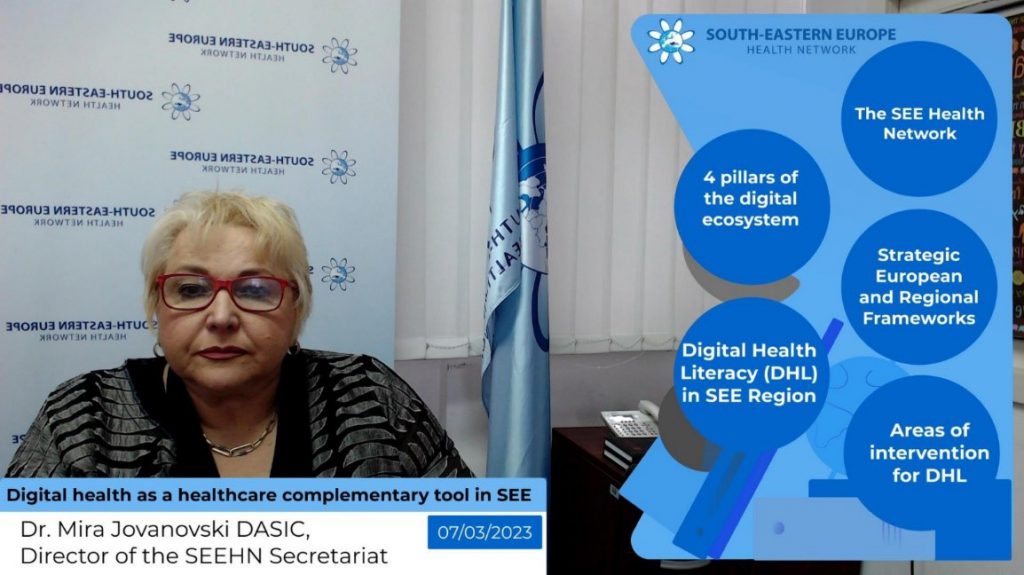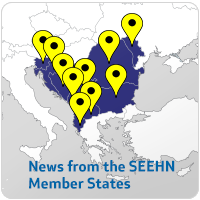Digital health literacy is a public health issue that potentially creates barriers for digital transformation in health systems. This requires informed policies to be addressed in Europe and globally.
The European Union, CEI and WHO Regional Office for Europe organized the event Improving Digital Empowerment for Active Healthy Living (IDEAHL) initiative jointly. The initiative is funded by the Horizon Europe Programme of the European Commission and engages 14 European partners in the consortium coordinated by the Ministry of Health, Asturias in Spain.
The aim of IDHEAL is to empower EU Citizens in using digital tools and taking more active role in the management of their own health and well-being as well as supporting innovations for coordinated person-centered models and to create a comprehensive and inclusive EU strategy for improving digital Health Literacy – (d)HL.
It gathered around 150 virtually policymakers, representatives of national and regional authorities and other organizations across Europe, and around 70 participants in presence at the European Parliament.
The occasion was a momentum for the European IDEAHL project to present the (d)HL mapping results that lays the foundations of the Strategy, and it will provide an illustration of (d)HL in Europe and beyond.
The meeting also used the opportunity to exchange experiences: knowledge sharing on how to empower European citizen in regards to d(HL) as a key component of the Strategy. Participants were involved in the identification of obstacles, difficulties, and areas of improvement.
Dr Dasic represented the SEEHN and its 9 member states within this block of discussions, advocating for better health and well-being in the South Eastern Europe. Digital health being one of tools that can accelerate greatly that objective. The pandemic was a turning point in the last two decades’ progress that particularly enabled all digital services. It created the set-up for a jump leap in digital services across the world, and SEE Region was not an exception.
In this respect, Dr Dasic pointed out the remaining big themes of concern common for all: the interconnectivity, data sharing, privacy and security.
She also dived into the particularities of the South Eastern Europe region, health literacy being an area requiring big efforts from both health professionals and population. Several areas of intervention that shall be envisaged to drive progress were highlighted:
- To explore the population’s level of digital maturity and digital readiness to use healthcare services;
- to enhance digital literacy in health-care professionals and the population at large;
- to explore the different electronic health records interoperability as a facilitator of multidisciplinary teamwork;
- Enhance multidisciplinary and teamwork towards integrated and networked care, aiming for cross-country cooperation;
- leverage the full potential through digital solutions of NCDs, healthy ageing, population health management, and an optimized role for nursing within the team work.
The event was also a great opportunity of co-creation of the (d)HL Strategy: the involvement of a wide range of policymakers that represented the key element for the success of the project and the Strategy to be developed. Finally, it fosters innovations for integrated person-centered care models while also allowing EU individuals to use digital technologies and take a more active part in managing their own health and well-being.
Please find the Agenda here.







